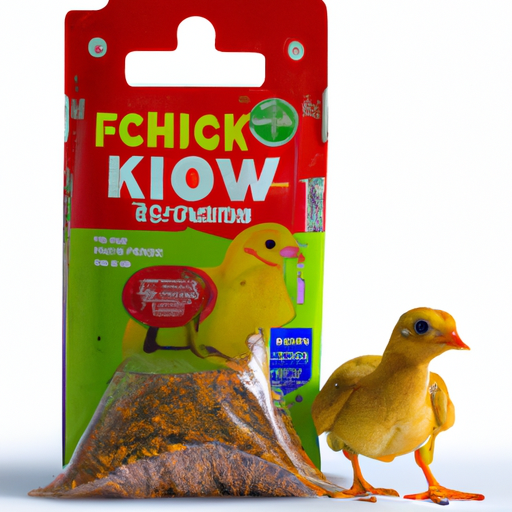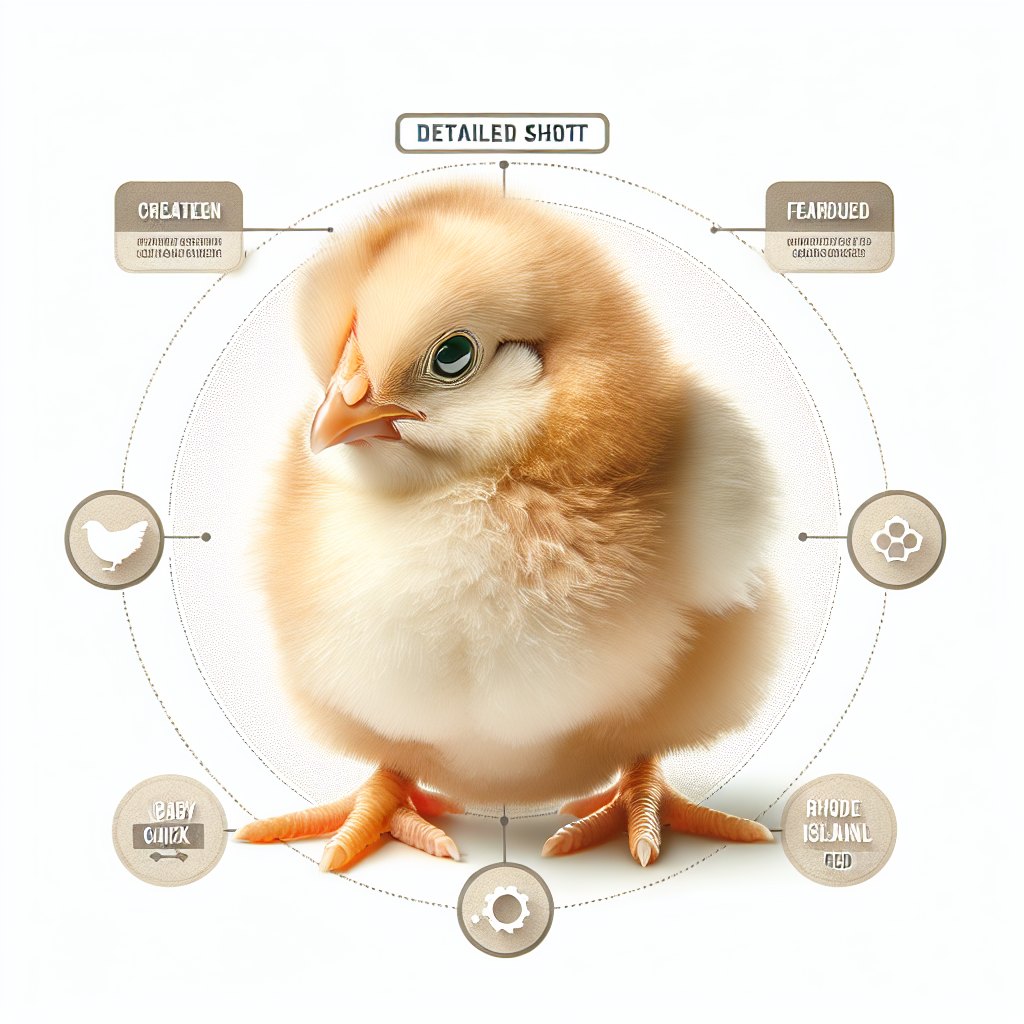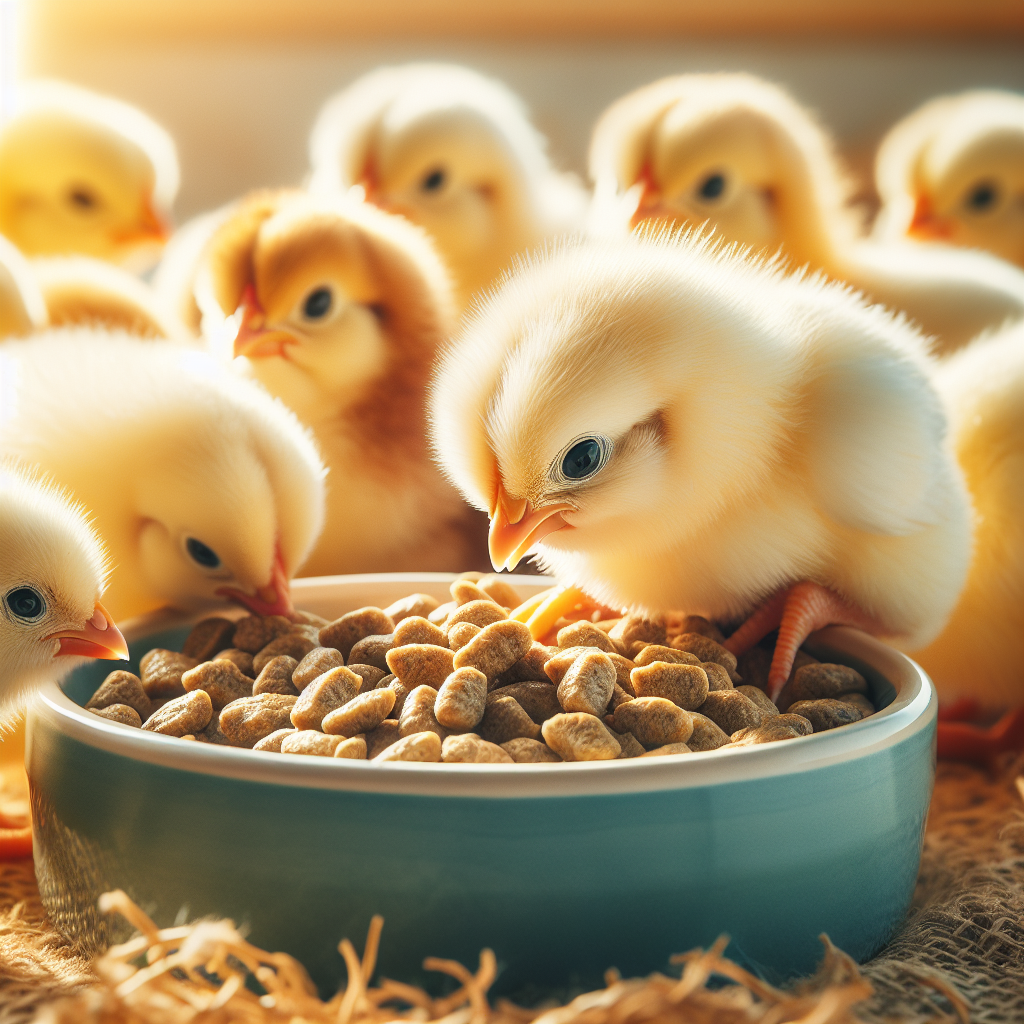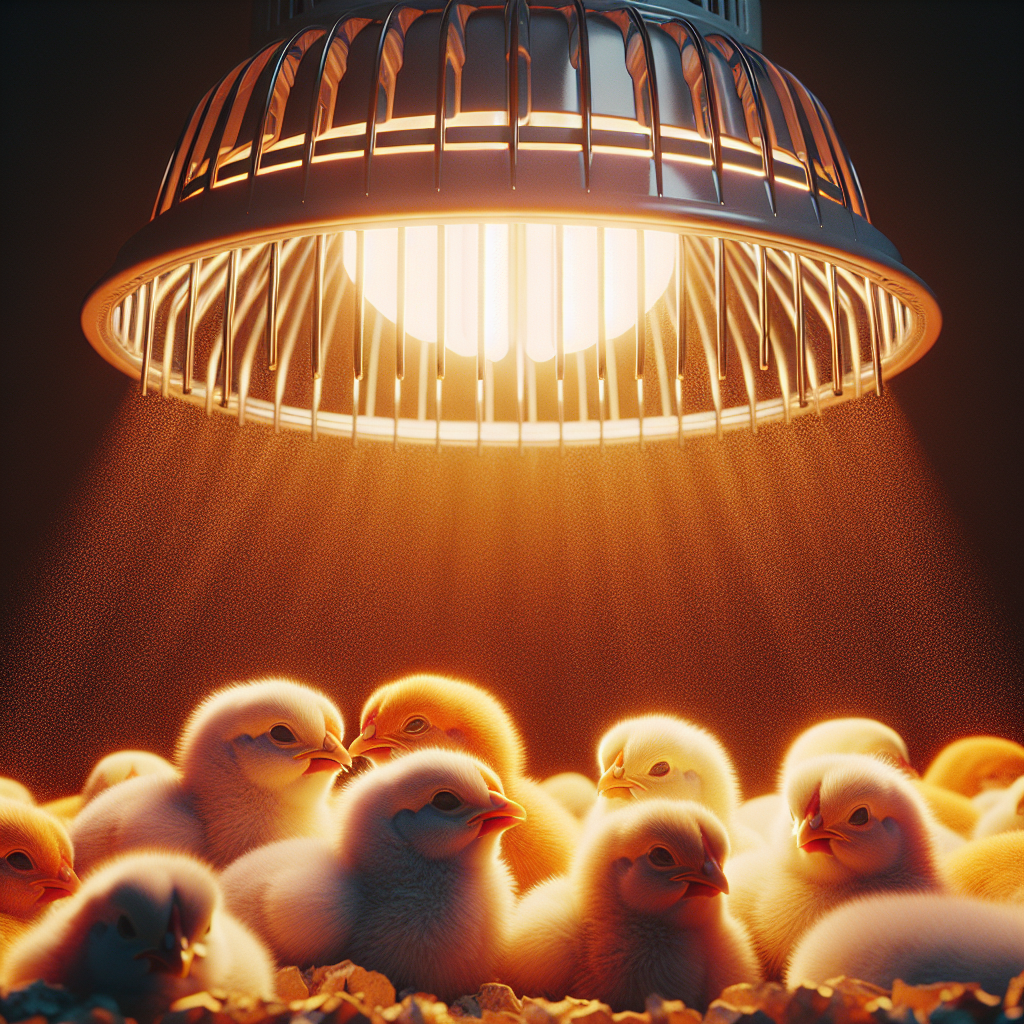If you’re a new chick owner, you may be wondering what types of feed are best suited for your fluffy little friends during their early stages. After all, providing them with the right nutrition is crucial for their growth and development. In this article, we’ll explore different options and shed some light on the best feed choices to keep your chicks healthy and happy. So, let’s get cracking and find out what your feathered pals need to thrive!
1. Importance of Proper Nutrition for Chicks
Proper nutrition is of utmost importance for the early development, growth, and overall health of chicks. During their early stages, chicks undergo rapid growth and development, making it crucial to provide them with the necessary nutrients to support their physiological needs.
1.1 Early Development
During the early stages of a chick’s life, it is essential to provide them with appropriate nutrition to support their growth and development. These early weeks are critical in establishing a solid foundation for their future development and productivity. Proper nutrition during this period ensures that chicks grow into healthy and thriving adults.
1.2 Growth and Health
Proper nutrition plays a vital role in the overall growth and health of chicks. It provides them with the essential nutrients needed for building strong bones, muscles, and organs. A well-balanced diet not only supports physical growth but also enhances their immune system, making them more resistant to diseases and infections.
1.3 Nutrient Requirements
Chicks have specific nutrient requirements that need to be met for optimal growth and development. These include proteins, carbohydrates, fats, vitamins, minerals, and water. Proteins are particularly important for muscle development, while carbohydrates and fats provide the necessary energy for various metabolic processes. Vitamins and minerals are crucial for proper functioning of the immune system, digestion, and overall health.
2. Starter Feeds for Chicks
Starter feeds are specifically formulated to meet the nutritional requirements of growing chicks. They provide a complete and balanced diet that is essential for their early stages of life.
2.1 Types of Starter Feeds
There are various types of starter feeds available for chicks, including medicated and non-medicated feeds. Medicated starter feeds contain medications such as coccidiostats to prevent and control common intestinal parasites. Non-medicated feeds, on the other hand, do not contain any medications and are suitable for chicks that are not at risk of specific diseases.
2.2 Ingredients in Starter Feeds
Starter feeds generally contain a combination of grains, protein sources, vitamins, and minerals. The primary protein sources in starter feeds are typically soybean meal or fish meal. Grains such as corn and wheat provide a good source of energy, while vitamins and minerals help meet the chick’s specific nutritional needs.
2.3 Advantages of Starter Feeds
Starter feeds offer several advantages for chicks in their early stages. They provide a balanced diet that ensures proper growth and development. Additionally, the inclusion of medications, if necessary, helps prevent and control common diseases. Starter feeds also offer convenience for raisers, as they eliminate the need for formulating homemade feeds.
3. Formulating Homemade Starter Feeds
Formulating homemade starter feeds can be an alternative for those who prefer to have more control over the ingredients they feed their chicks. It allows for customization according to specific nutritional requirements and availability of ingredients.
3.1 Choosing Essential Ingredients
When formulating homemade starter feeds, it is crucial to include essential ingredients that provide the necessary nutrients. Protein sources like soybean meal or fish meal should be included to support muscle development. Grains such as corn, barley, and wheat can provide the required energy. Supplementing with vitamins and minerals is important to meet all nutritional needs.
3.2 Balancing Nutrient Requirements
Formulating homemade starter feeds requires careful consideration of the nutrient requirements of chicks. It is important to ensure proper levels of protein, carbohydrates, fats, vitamins, and minerals. Consulting with a poultry nutritionist or using premixed supplements can help ensure the correct balance of nutrients.
3.3 Recipes for Homemade Starter Feeds
There are numerous recipe options available for homemade starter feeds. Some common ingredients in these recipes include grains, protein sources, vitamins, and minerals. These recipes can be adjusted based on the specific requirements and preferences of the raiser. It is essential to follow a recipe that provides the right balance of nutrients to promote optimal growth and health.
4. Commercial Starter Feeds
Commercial starter feeds are readily available and provide a convenient and reliable option for feeding chicks. They are specifically formulated to meet the nutritional needs of growing chicks.
4.1 Purposes and Varieties
Commercial starter feeds serve the purpose of providing a complete and balanced diet to support the growth and development of chicks. They are available in various varieties, including medicated and non-medicated options, to cater to different needs and preferences of the raiser.
4.2 Quality and Safety Standards
Commercial starter feeds are produced following strict quality and safety standards. They are manufactured in facilities that maintain high levels of hygiene and quality control. This ensures that the feeds are free from contaminants and meet the nutritional requirements of chicks.
4.3 Common Brands and Recommendations
There are several reputable brands that offer high-quality commercial starter feeds for chicks. Some common brands include XYZ Feeds, ABC Nutrition, and 123 Poultry Supplies. Recommendations for specific brands can vary based on regional availability and personal preferences. It is advisable to consult with fellow poultry raisers or local agricultural experts to determine the best brand for your chicks.
5. Supplementation for Optimal Development
Supplementing the diet of chicks with additional nutrients can enhance their overall development and well-being. Various supplements, including vitamins, minerals, probiotics, and prebiotics, can be beneficial for chicks.
5.1 Importance of Supplements
Supplements play a crucial role in ensuring that chicks receive all the necessary nutrients required for optimal growth and development. Sometimes, even a well-balanced diet may lack certain nutrients, making supplementation necessary to fill those gaps. Additionally, supplements can support the chick’s immune system and improve their gut health.
5.2 Vitamin and Mineral Additives
Vitamin and mineral additives are commonly used as supplements for chicks. These additives include vitamins A, D, E, B complex, and minerals such as calcium, phosphorus, and zinc. These nutrients are essential for proper bone development, muscle growth, enzyme function, and overall health.
5.3 Probiotics and Prebiotics
Probiotics and prebiotics are beneficial bacteria and fibers that can promote a healthy gut in chicks. They contribute to improved digestion, nutrient absorption, and a stronger immune system. Probiotics can help establish a balanced gut microbiome, while prebiotics provide nourishment for these beneficial bacteria.
6. Feeding Strategies for Chicks
Developing appropriate feeding strategies is crucial for the well-being of chicks. The frequency of feeding, access to feed, and management of feed waste are important considerations.
6.1 Feeding Frequency
Chicks should be fed several times a day during their early stages. Initially, frequent feeding every 2-3 hours is recommended to meet their high energy demands. As they grow, the feeding frequency can be gradually reduced to 4-5 times a day. Ensuring regular, small meals throughout the day promotes better digestion and nutrient absorption.
6.2 Feed Access and Space Requirements
Chicks should have easy access to feed at all times to prevent hunger and stress. A well-designed feeding system with adequate space for each chick ensures that they all have a fair opportunity to eat. Sufficient feeding space reduces competition and minimizes the risk of injury.
6.3 Managing Feed Waste
Proper management of feed waste is essential to prevent contamination and reduce costs. Using feeders that minimize spillage or waste helps ensure that the feed is consumed efficiently. Regular cleaning and sanitization of feeders and feeding areas also contribute to healthier and cleaner feeding conditions.
7. Monitoring Feed Consumption
Monitoring feed consumption is an important practice to ensure that chicks are receiving an adequate diet. Tracking individual intake, observing eating patterns, and adjusting feed quantity as needed are crucial for their well-being.
7.1 Tracking Individual Intake
Monitoring the individual intake of chicks allows for identifying any potential issues such as poor appetite or overeating. Keeping track of the amount of feed consumed by each chick helps ensure that they are receiving a balanced diet. It also helps identify any health issues that may affect their appetite or feeding behavior.
7.2 Observing Eating Patterns
Observing the eating patterns of chicks can provide valuable insights into their nutritional needs and overall health. It allows for identifying any abnormal behavior or signs of distress during feeding. Regular observation can help raise awareness of potential issues and enable prompt intervention if necessary.
7.3 Adjusting Feed Quantity
Adjusting the feed quantity based on the observed intake and growth of chicks is crucial for maintaining their health and promoting optimal growth. Underfeeding can lead to stunted growth and nutrient deficiencies, while overfeeding can result in excessive weight gain and health issues. Regular evaluation and adjustment of feed quantity ensure that chicks receive the right amount of nutrition for their developmental stage.
8. Transitioning to Grower Feeds
As chicks mature, they require a different feed formulation to support their changing nutritional needs. Transitioning to grower feeds at the appropriate time is essential for their continued growth and development.
8.1 Age for Transition
The transition from starter feeds to grower feeds typically occurs when chicks are around 4-6 weeks old, depending on their breed and growth rate. At this stage, chicks have developed their digestive system to handle a higher level of fiber and different nutrient ratios provided by grower feeds.
8.2 Choosing the Right Grower Feed
Selecting the right grower feed is crucial to meet the specific nutritional requirements of maturing chicks. Grower feeds typically have reduced protein levels and different ratios of carbohydrates and fats compared to starter feeds. It is important to choose a grower feed that is appropriate for the breed and intended purpose of the birds, such as meat production or egg-laying.
8.3 Transition Period
During the transition period, it is essential to gradually introduce grower feeds while gradually reducing the amount of starter feed provided. This transitional approach helps the chicks adapt to the new feed while maintaining a balanced diet. Monitoring the chicks’ response to the transition and adjusting the feed quantities accordingly ensures a smooth and successful transition.
9. Special Considerations for Organic Chicks
For those raising organic chicks, special considerations need to be taken into account regarding their feed. Organic feed regulations, sourcing organic starter feeds, and integrating organic practices are important aspects to consider.
9.1 Organic Feed Regulations
Organic chicks require feed that meets specific organic regulations. These regulations ensure that the feed is produced without the use of synthetic pesticides, fertilizers, or genetically modified organisms (GMOs). Compliance with these regulations is necessary to maintain the organic integrity of the flock.
9.2 Sourcing Organic Starter Feeds
Sourcing organic starter feeds can be challenging, but various suppliers offer certified organic options. It is important to research and verify the organic certification of the feed supplier. Organic starter feeds should meet the specific nutritional needs of chicks while adhering to organic regulations.
9.3 Integrating Organic Practices
Raising organic chicks involves more than just providing them with organic feed. It also requires implementing organic practices in all aspects of their care, including housing, bedding, and natural remedies for disease prevention and control. Integrating these practices ensures the overall organic integrity of the flock.
10. Common Feed Related Issues for Chicks
While proper nutrition is vital for the well-being of chicks, there can be certain feed-related issues that need to be addressed to ensure their optimal development.
10.1 Fungal Contamination
Fungal contamination in feed can lead to health issues in chicks. Moisture, heat, and poor storage conditions can contribute to the growth of molds and fungi in feed. Regular inspection of feed and proper storage in cool, dry areas can help prevent fungal contamination.
10.2 Nutritional Deficiencies
Nutritional deficiencies can occur if chicks are not provided with a well-balanced diet. Deficiencies in essential nutrients such as proteins, vitamins, and minerals can lead to stunted growth, weakened immune system, and other health problems. Regular monitoring of chicks’ growth, observation of their behavior, and adjusting the diet as needed help prevent nutritional deficiencies.
10.3 Controlling Feed Spoilage
Poor feed storage and handling practices can lead to feed spoilage. Contaminated or spoiled feed can have a negative impact on the health and growth of chicks. It is important to store feed in a cool, dry, and clean environment to prevent spoilage. Regular inspection of feed quality and timely disposal of spoiled feed are essential to maintain their overall well-being.
In conclusion, providing proper nutrition to chicks during their early stages is crucial for their overall growth, development, and health. Whether through commercial starter feeds or homemade formulations, meeting their nutrient requirements ensures that they grow into healthy and thriving birds. Regular monitoring of feed consumption, transitioning to appropriate feeds, and addressing feed-related issues contribute to the well-being and success of chicks in their early stages.




